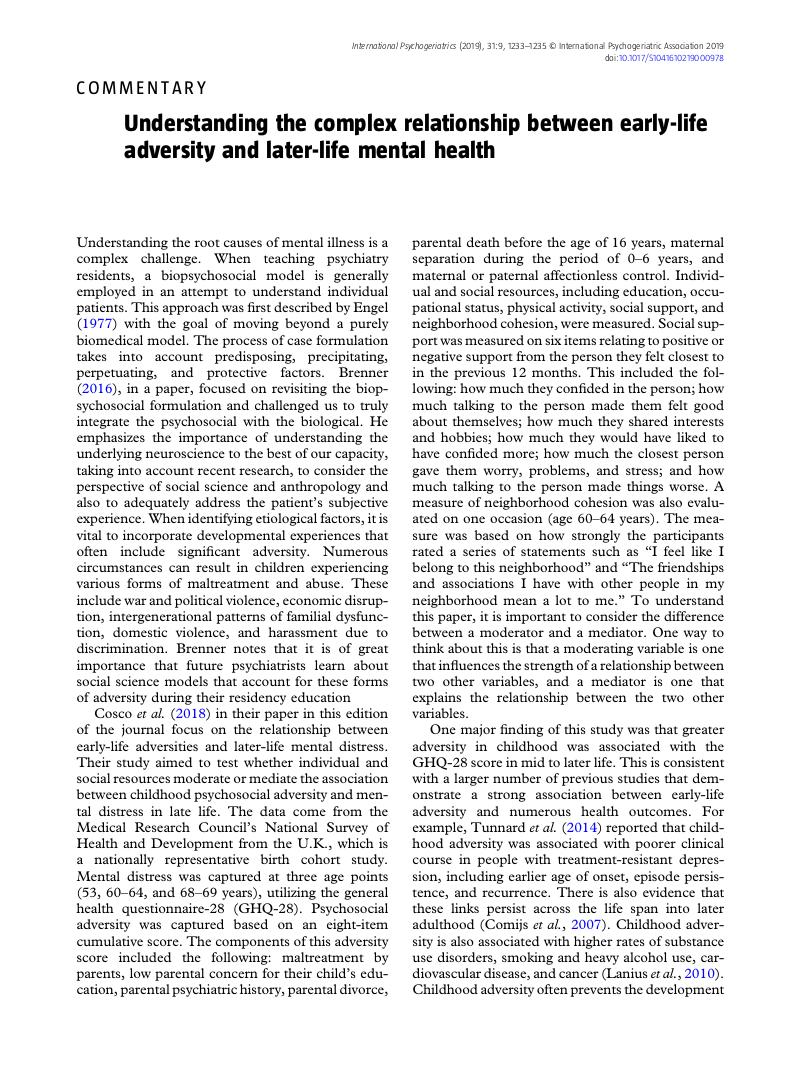Crossref Citations
This article has been cited by the following publications. This list is generated based on data provided by Crossref.
Vicman, Jessica M.
Cardillo, Lila G.
and
Doan, Stacey N.
2023.
Encyclopedia of Mental Health.
p.
565.
Liu, Ben Chi-Pun
and
Liu, Rosanna Ho-ling
2023.
Early life adversities and discrimination, social activity, and loneliness among older adults in Europe: a moderated mediation analysis.
Aging & Mental Health,
Vol. 27,
Issue. 8,
p.
1627.
Naderzadeh, Saba
Khoran, Zahra
Khanjani, Mahdi
and
Wiesmann, Ulrich
2023.
Childhood maltreatment, late-life depression, and sense of coherence: a structural equation modeling.
Aging & Mental Health,
Vol. 27,
Issue. 5,
p.
965.
Xiao, Wan
Li, Shuqin
Xu, Huiqiong
Zhang, Yi
Wei, Ruihong
Tao, Fangbiao
and
Wan, Yuhui
2023.
Population attributable fractions of adverse childhood experiences for emotional problems and self-harming behaviors among middle school students in China.
Asian Journal of Psychiatry,
Vol. 85,
Issue. ,
p.
103621.



